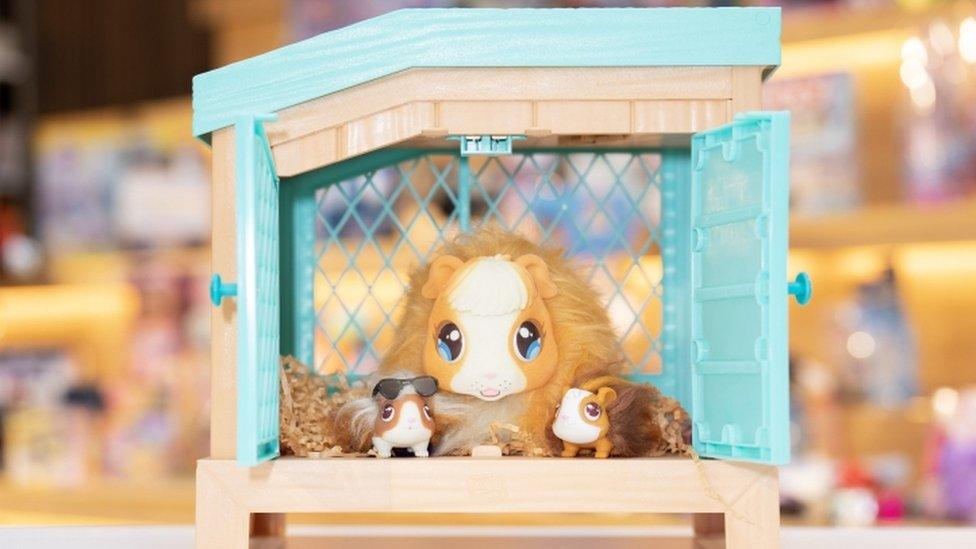Parents buying more toys and games for themselves
- Published
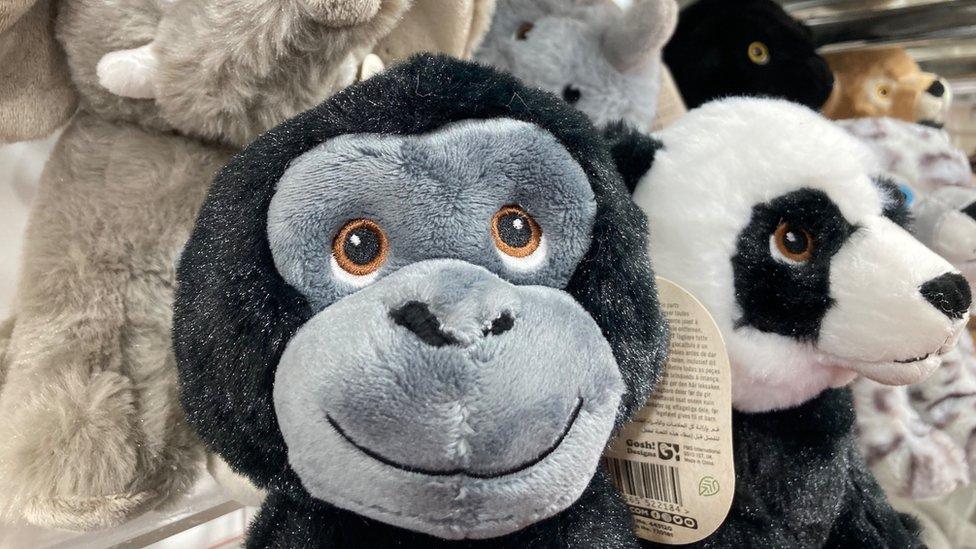
Soft toys, like these made from recycled plastic bottles, were popular
Parents are increasingly buying toys and games for themselves, despite cost-of-living pressures, new research suggests.
Analysts NPD said more than one in four toys and games bought last year went to adults and teenagers.
So-called kidults may be spending their limited disposable income on puzzles rather than nights out, it added.
It came as toy sales overall fell in 2022 as parents cut back on low-cost impulse buys.
The number of toys and games sold fell by 6% compared with the previous year, NPD said.
Parents typically bought toys of £30 to £50, but resisted small and unplanned purchases, with sales of "pocket money toys" under £10 falling sharply.
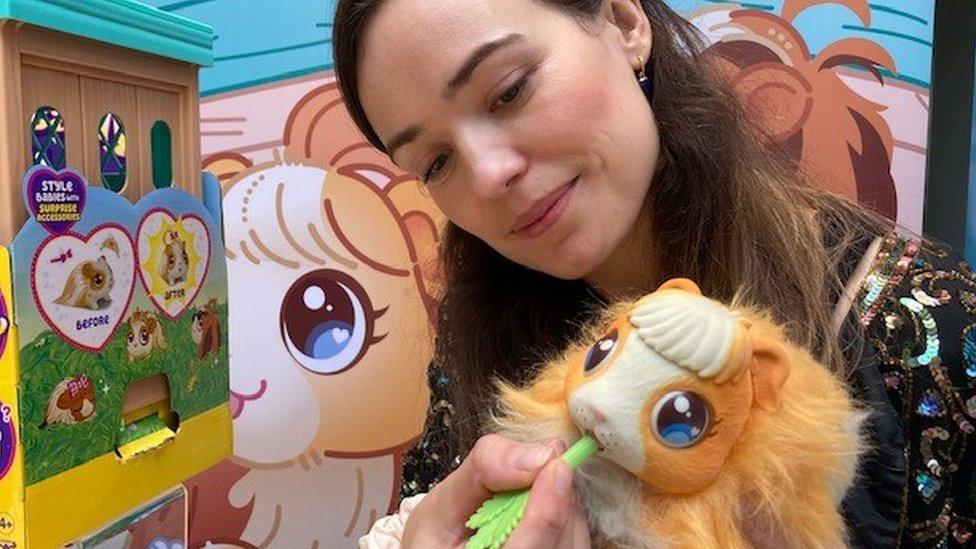
Christmas is a key period for toy sales
Among the most popular items sold were soft toys such as Squishmallows, building sets, action figures and vehicles.
Melissa Symonds, NPD's executive director, said parents similarly cut back on low cost during the financial crisis of 2008.
She added that parents facing rising bills and prices had become very price savvy, seeking out "choice and value".
About a third of shoppers compared prices online and in-store before deciding what to buy in the run-up to Christmas. Such considered shopping habits were another factor in the drop in lower cost toy sales, she suggested.
In-store sales accounted for half of last year's total, up 6% on the previous year, owing in part to concern over delivery disruption and there being a full shopping week before Christmas Day which fell on a Sunday.
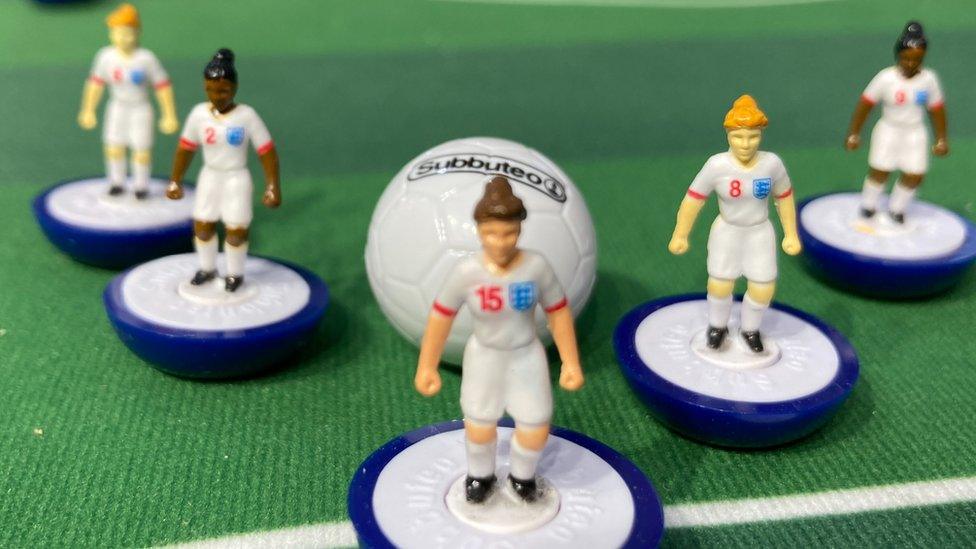
The Lionesses Subbuteo line celebrated the real team's success
Despite consumers shopping around on price, the toy industry is comparatively resilient to economic downturns compared with other sectors.
Sales last year, by value, were down 3% compared with the previous year, NPD analysis suggests.
The average price of a toy is £10.54. With price so important to consumers, the toy industry has been lobbying the government over rules regarding the sale of cheap, potentially low-quality products on internet marketplaces.
The British Toy and Hobby Association, which is holding its annual Toy Fair at London's Olympia, said there was a risk of dangerous products being sold by third-party sellers on these sites.
Spokeswoman Kerri Atherton said that these portals did not have the same obligations as the rest of the industry, allowing third-party sellers to list cheaper products without having to invest in quality and safety controls.
She said the association had been pressing ministers on the matter for four years, but now a product safety review was imminent.
Related topics
- Published20 January 2023
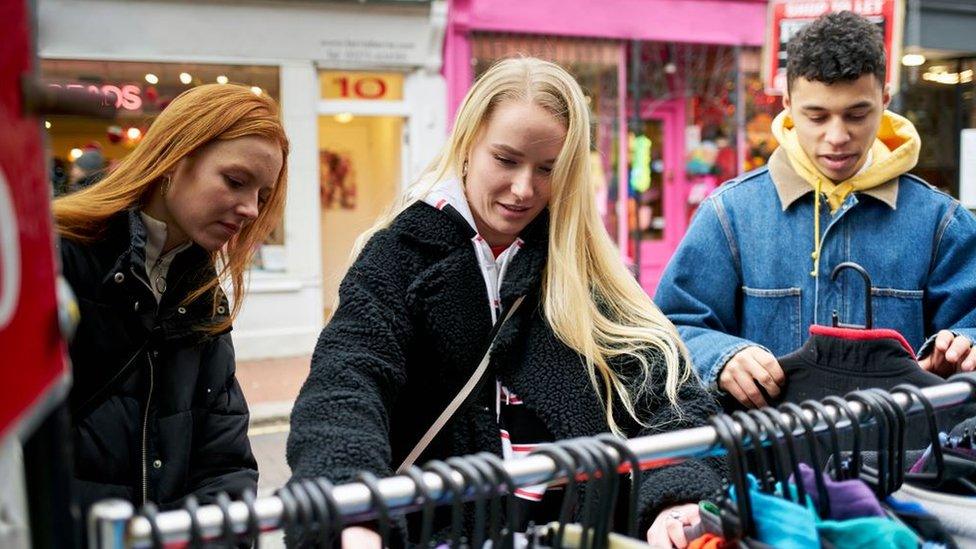
- Published11 January 2023
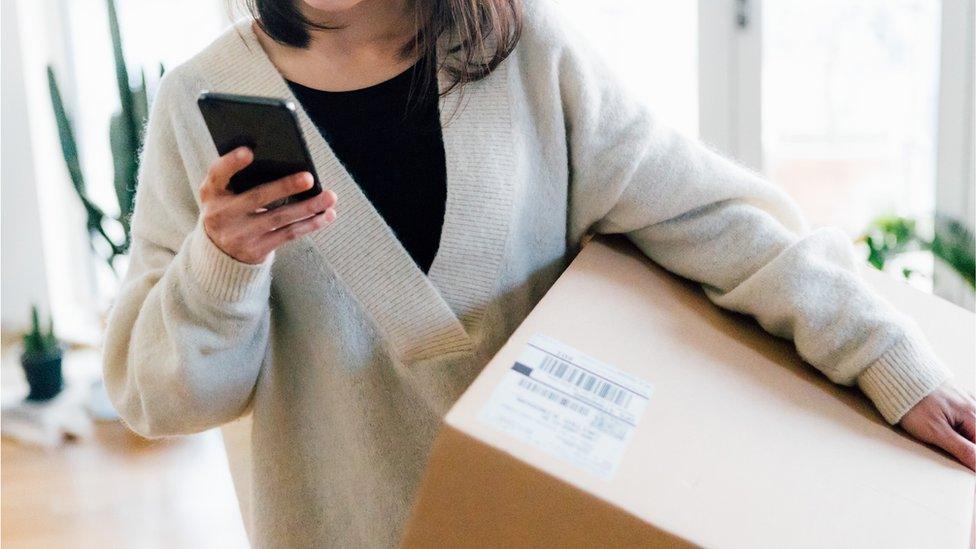
- Published24 January 2023
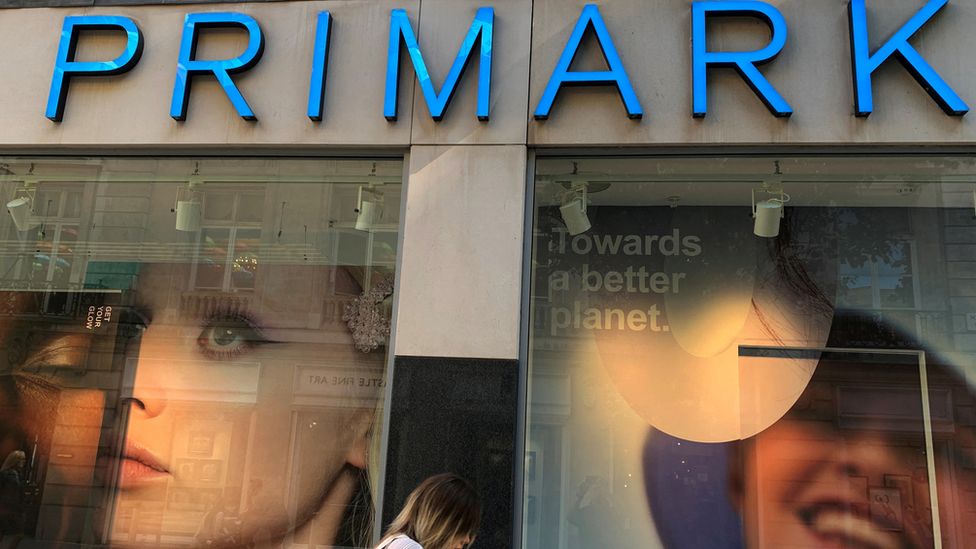
- Published9 November 2022
